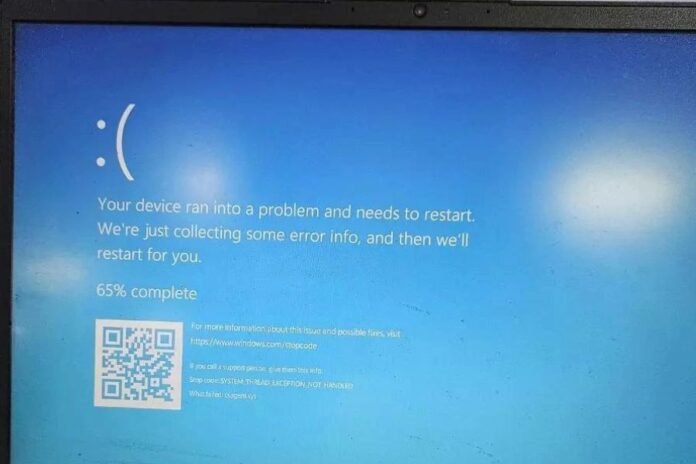Windows users were on edge on Friday global Microsoft outage, much like the world was at the start of the millennium due to the Y2K issue. The infamous Blue Screen of Death (BSOD) flickered on their displays.
Due to the global Microsoft outage, businesses, banks, and government offices worldwide are experiencing disruptions due to the unexpected crashes and restarts that were caused by a recent update to CrowdStrike.
Similar to the Y2K bug in 2000, this current predicament caused by the global Microsoft outage has caused much anxiety.
A Windows bug known as the “Y2K” bug threatened to cause issues when handling dates that went past December 31, 1999.
On January 1, 2000, computer programmers and users worldwide encountered this problem, which also became known as the “millennium bug.” Computer engineers utilized a two-digit code for the year in the 1960s–1980s, leaving off the “19” to conserve data storage space.
Anxiety increased as the year 2000 drew near due to this abbreviated date format. Programmers realized that the character “00” could be interpreted by computers as 1900 instead of 2000, which could cause harm or defects to daily or annual programming.
Because banks calculate interest rates on a daily basis, the Y2K issue caused them a great deal of trouble. Due to the error, computers calculated interest rates incorrectly, billing clients for minus 100 years as opposed to just one day. Customers may have suffered as a result of the improper interest charges caused by this miscalculation. There was also danger to power plants, which depend on regular computer maintenance for safety inspections.
Residents in the vicinity were put at danger of accidents as a result of the Y2K bug, which interfered with calculations for vital safety checks including radiation levels and water pressure. Transportation systems, including airlines, were also vulnerable to the Y2K bug.
Computers responsible for scheduling flights failed to accurately calculate the correct time and date. It led to potential flight disruptions and safety risks, especially since there were very few airline flights in 1900.
The Y2K issue affected both hardware and software, making it a dual danger. Software vendors hurried to resolve the problem and offered “Y2K compliant” solutions to aid in the bug’s remedy. Hardware manufacturers, meanwhile, were busy making sure their equipment complied with the new software.
Research firm Gartner estimated that the global cost of correcting the Y2K issue was between $300 billion and $600 billion. Along with their own predictions, the companies also gave their costs: General Motors estimated $565 million, Citicorp $600 million, and MCI $400 million.
Also Read: Vivo Y28s, Vivo Y28e launched in India; know price, features
The US government established a President’s Council and the Year 2000 Information and Readiness Disclosure Act in order to solve the problem. This council oversaw the preparations to make sure private enterprises were ready for the new millennium. It was made up of officials from numerous agencies.
Converting the date from a two-digit to a four-digit number was the surprisingly easy fix. Governments and a variety of other sectors adopted the fix. The year 2000 had a peaceful transition despite a lot of people’s worries. Some nations, like Italy, Russia, and South Korea, who made minimal preparations for Y2K, faced the same technological challenges as those that made significant investments to deal with the situation. As a result, several people discounted the Y2K problem as a hoax or an exaggerated danger.



